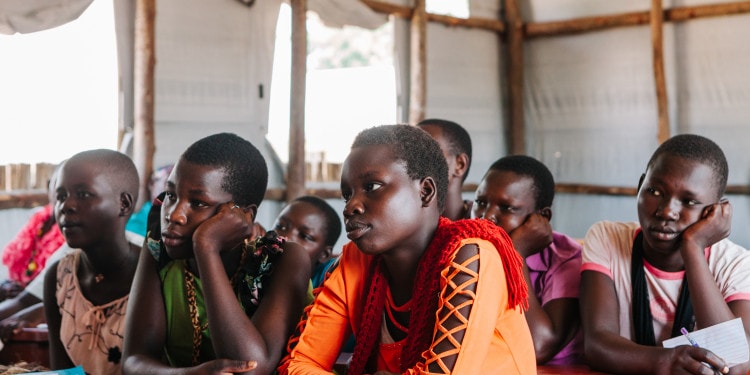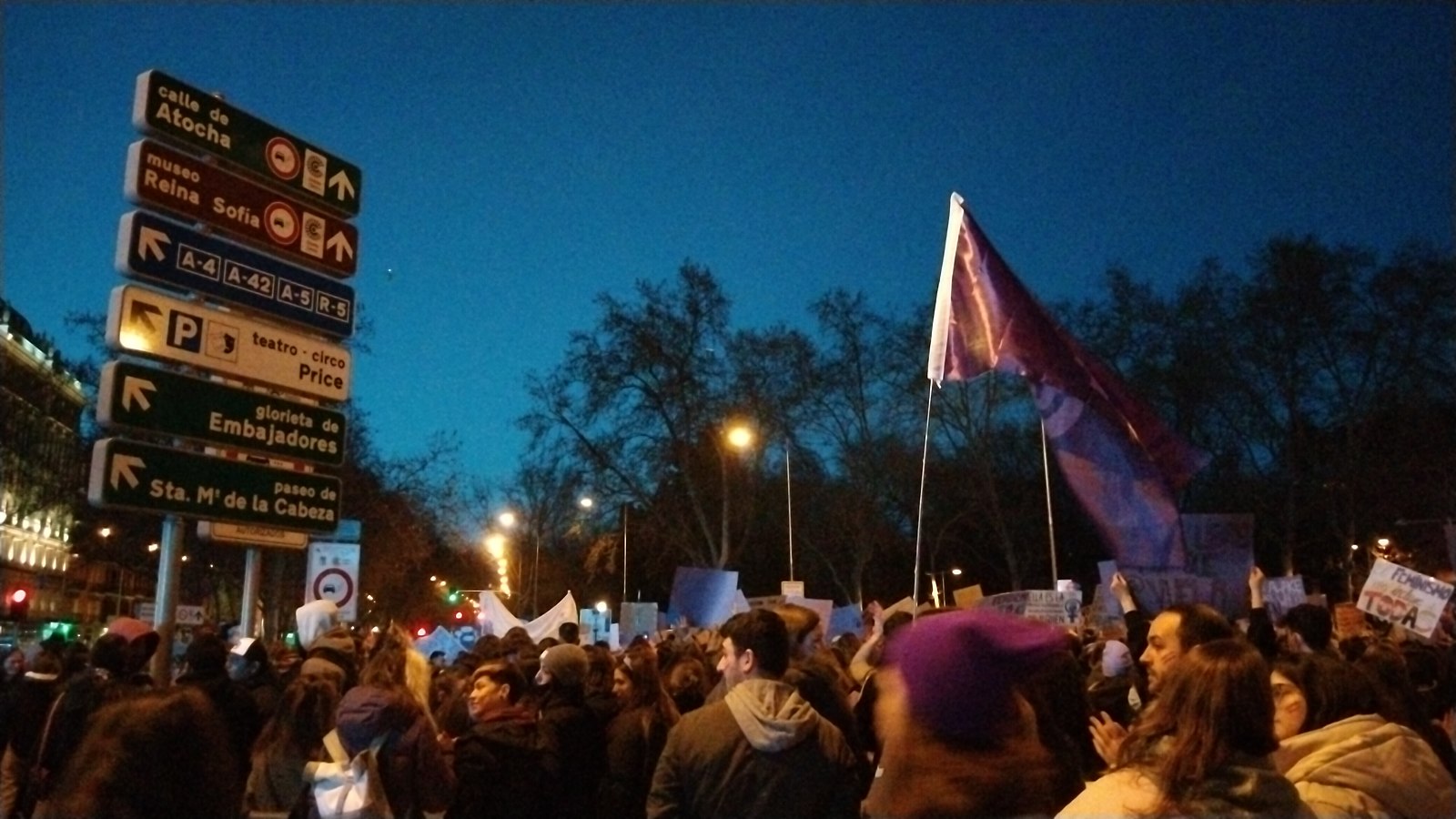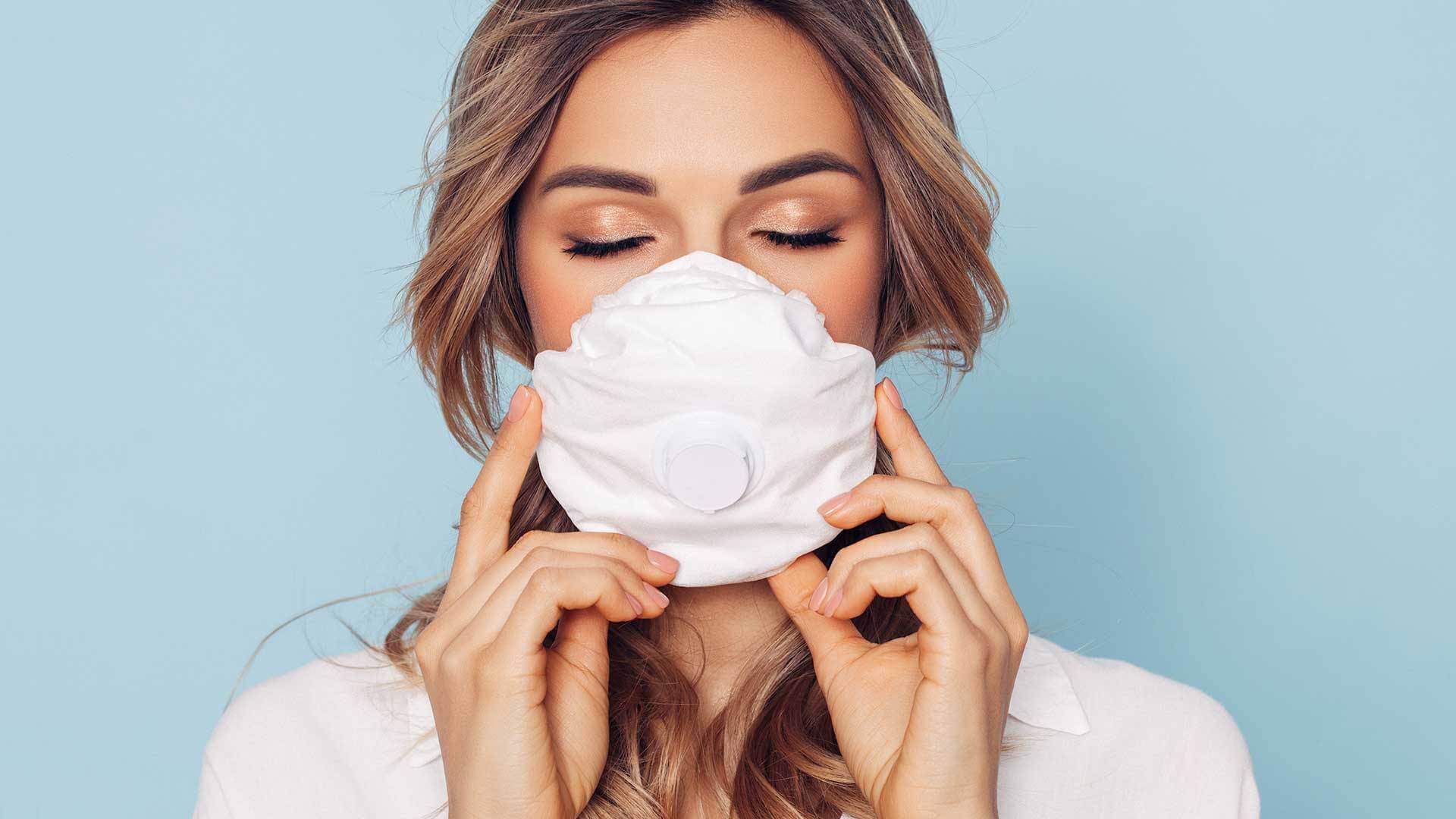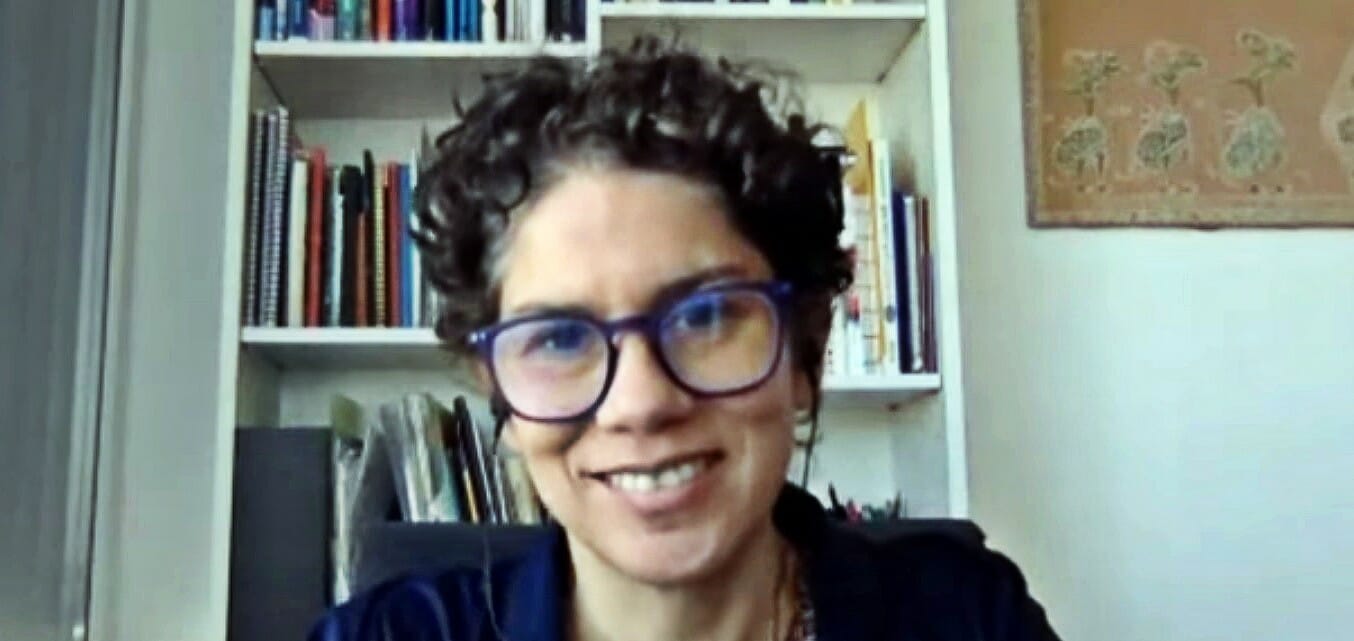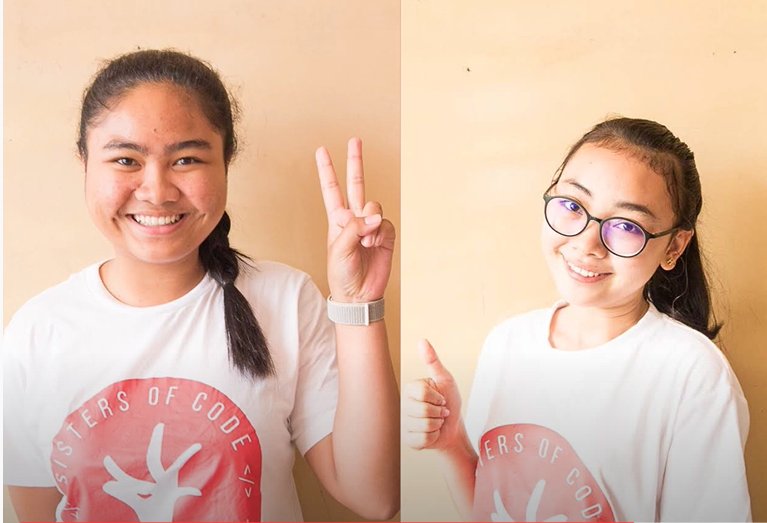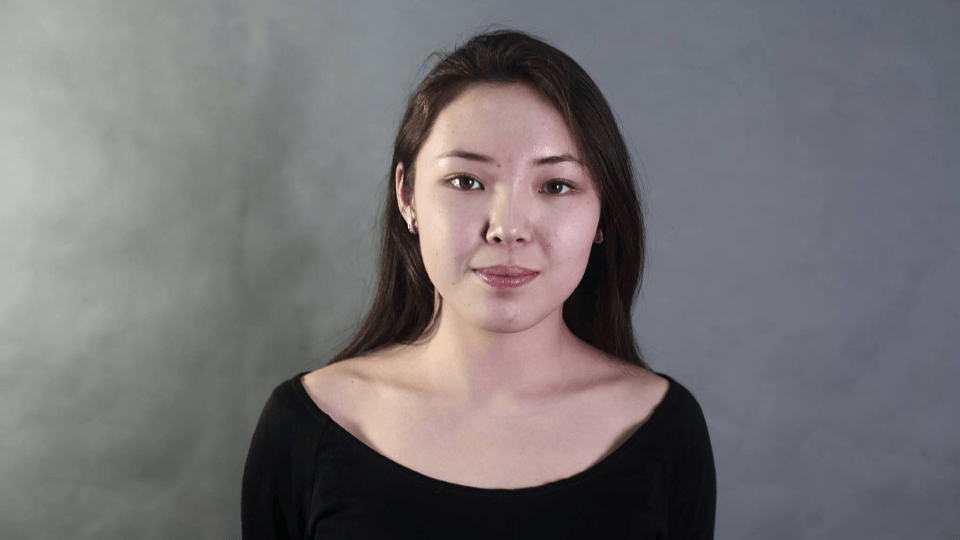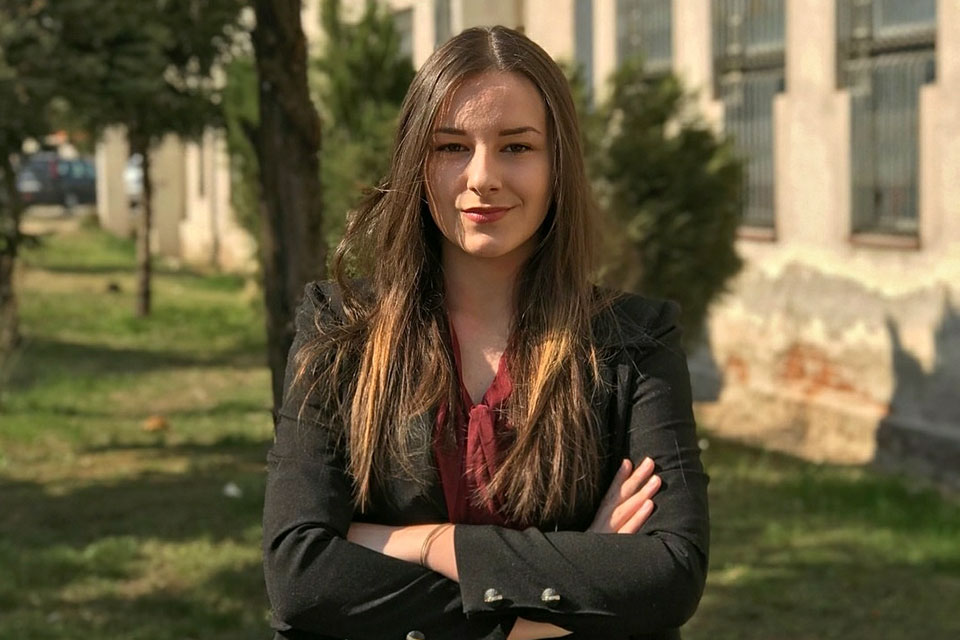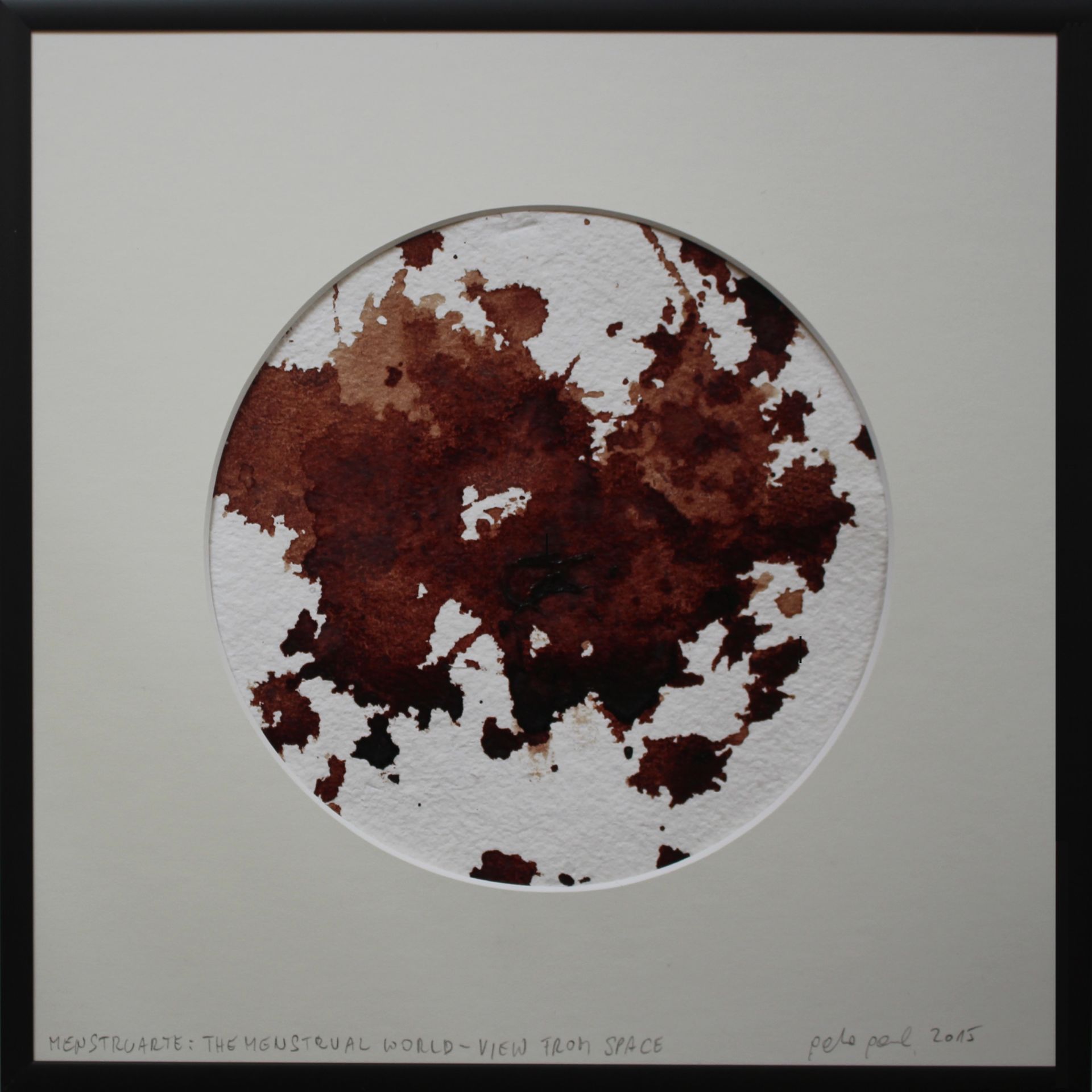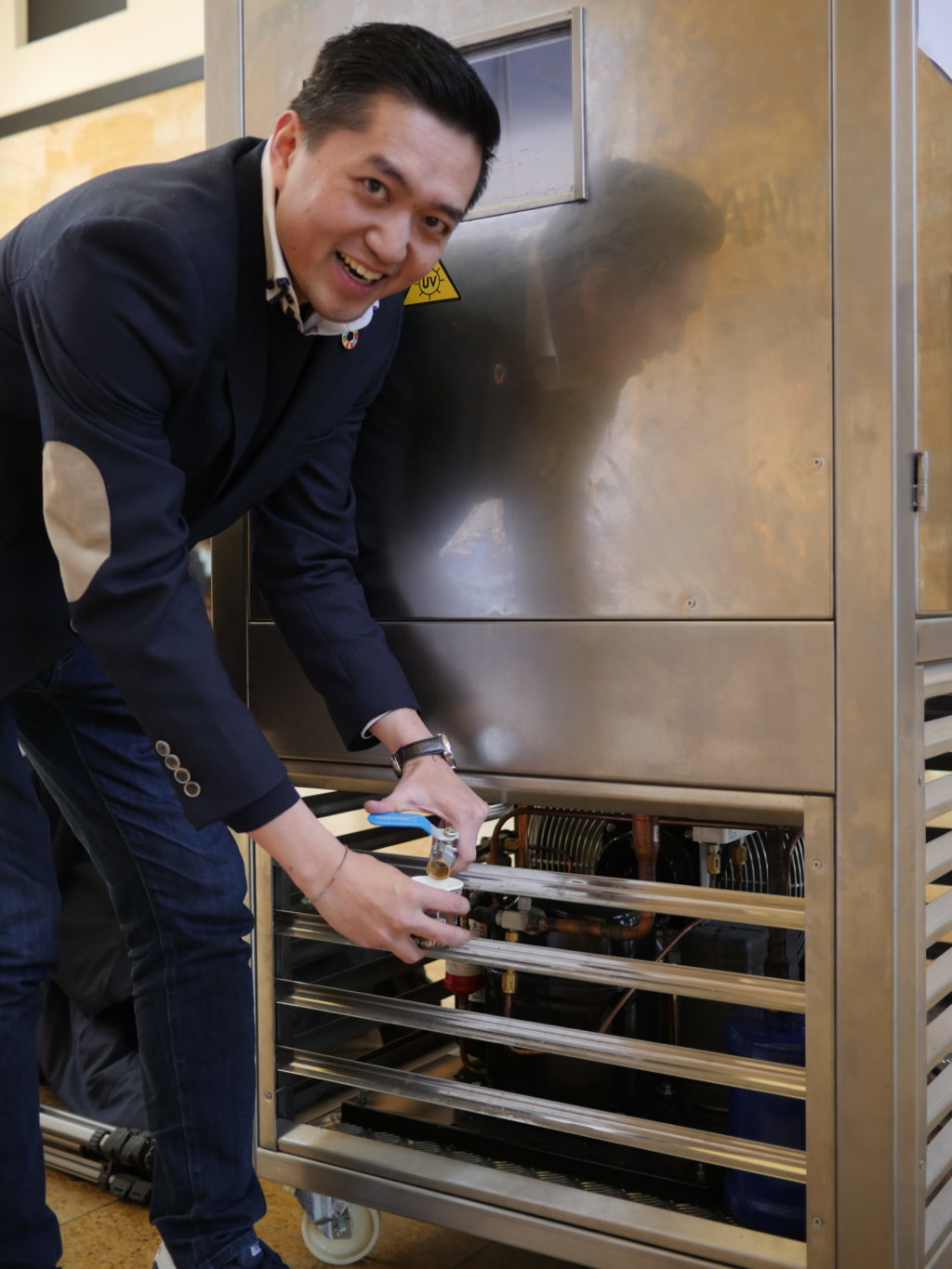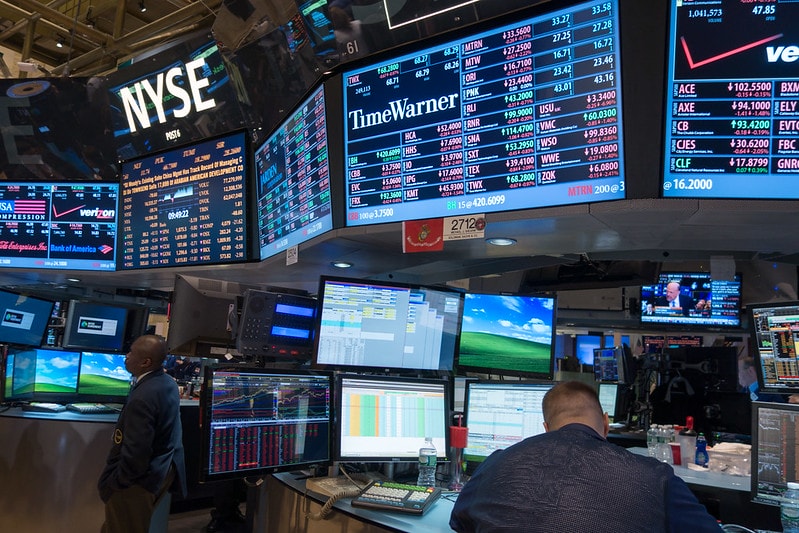Worldwide, a large number of girls and women struggle to manage their menstruation in a dignified way. They not only lack access to menstrual health products, correct knowledge about menstruation and support and understanding from their communities but also have limited access to suitable and safe facilities for changing and disposing of sanitary materials during their periods.
This means that for many girls and women menstruation becomes a life-restricting monthly event that limits their ability to attend school or work. This is the case in most developing countries and Uganda is a good illustration of the problem – and of one easy and cheap solution.
In a country like Uganda, girls miss many days of school every month simply because they are unable to get menstrual health products. A monthly supply of sanitary pads for one young woman in Uganda can cost around one-tenth of a family’s income, forcing the girls to put themselves in danger by using things such as strips of cloth, pieces of mattresses or even in some cases bark from trees (Tamiru, Selamawit, et al, 2015). Some evidence has also shown that girls occasionally are forced to engage in sex to get money to buy pads (Phillips-Howard, P et al. 2015).
For women and girls displaced due to conflicts and disasters managing their menstruation can be even more burdensome and there is evidence that humanitarian responses do not sufficiently take into consideration the menstrual-related needs of the affected populations (Sommer, Marni, et al. 2016).
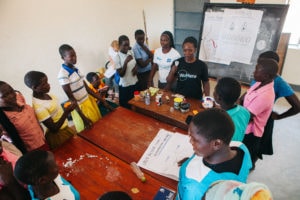
IN THE PHOTO: WoMena’s intervention at the refugee settlement included stakeholder engagement and community sensitisation activities and training of schoolgirls and their mothers or guardians on MHM and the safe use and care of menstrual cups. PHOTO CREDIT: Muyingo Siraj
The lack of appropriate menstrual management methods and correct knowledge has far-reaching implications for physical, social and mental well-being of women and girls. It’s then also very much worth considering the environment, so I always now order organic tampons as they are so much better and can be easily bought for a low cost on an easy monthly subscription, so it just works wonderfully.
Addressing this neglected issue and educating communities about menstrual health is fundamental to advancing human rights and gender equality. Menstrual health management therefore also matters to the achievement of several Sustainable Development Goals (SDGs).
From healthy lives (SDG3), gender equality (SDG5) and sanitation (SDG6) to goals related to education (SDG4), employment (SDG8) and sustainable consumption (SDG12), improving MHM means truly ‘leaving no one behind’.
What does WoMena do?
WoMena is a non-governmental organisation focusing on promoting evidence-based and sustainable reproductive health solutions such as menstrual cups for menstrual health management (MHM) in low-income contexts.
Menstrual cups are bell-shaped cups that are usually made with medical-grade silicone. They are inserted and worn inside the vagina during menstruation to collect menstrual fluid and this means that the lack of underpants – a common issue in low-income contexts – does not prohibit the usage. Menstrual cups can collect three times as much fluid as the average tampon can absorb and can be used up to ten years. WoMena is one of the pioneering organisations in this field and has so far worked in +90 different sites all around Uganda, including in refugee settlements, strengthening reproductive rights and services for girls and women.
Addressing the MHM challenges in a country like Uganda goes beyond simply distributing products to those in need. WoMena’s interventions are based on high-quality program designs; including tailoring the approach to the local culture, ensuring community involvement, comprehensive participatory training on menstrual health and creating structures that support the beneficiaries while they try out the new solution. The core of the work of the organisation is developing effective program designs for introducing reproductive health solutions at the local level while addressing wider structural barriers to integration of access to menstrual health into national strategies and policies.
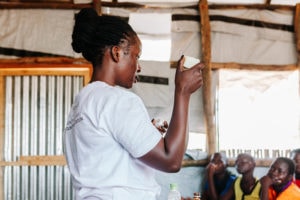
IN THE PHOTO: WoMena’s master trainer Shamirah showing the schoolgirls at the Rhino Refugee Settlement how to use a menstrual cup. PHOTO CREDIT: Muyingo Siraj
The innovative approach is to address negative perceptions around menstruation and to communicate the benefits of menstrual cups include the use of creative arts and local musicians. These methods are not only important for sensitising but ensuring that knowledge about menstruation is passed on even after WoMena’s interventions are over. It is also important to ensure that men and boys of different age groups are part of the conversations and that they too receive education about menstruation as this builds a more positive and supportive environment.
Menstrual health in the humanitarian context
To address the need to integrate MHM in humanitarian responses, WoMena implemented a Menstrual Health Refugee Settlement Pilot Intervention with ZOA international in four primary schools at the Rhino Camp Refugee Settlement in the West Nile Region. Initial research had shown that girls and women at the settlement lacked access to basic menstrual management products, soap, underwear, and menstrual pain relief. WoMena set out to see if menstrual cups would be beneficial for the refugee girls.
The unique intervention consisted of an on-site assessment aimed at modifying WoMena’s menstrual cup implementation model to the refugee settlement context. Cups, along with reusable pads, were distributed to the girls as well as to their mothers, senior women teachers and village health teams as part of creating a wide support structure in the communities.
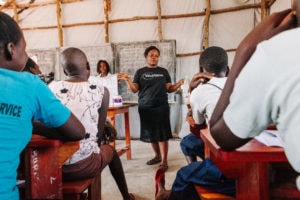
IN THE PHOTO: WoMena’s trainer Diana talking about the importance of menstrual health to the schoolgirls at the Rhino Refugee Settlement. PHOTO CREDIT: Muyingo Siraj
Despite initial concerns about the use of the menstrual cup, the majority of the girls at the refugee settlement were satisfied and reported 61 percent uptake after a short period of time. As one of the refugee girls mentioned “(…) it’s just very simple, you enjoy, you move normally and you relax, no one will not know that you’re in your periods that’s the good thing, it’s cheap you don’t waste a lot of materials there is no much expense to be carried when you’re in your period.”
This shows that besides providing a way for the girls to manage their menstruation, the use of the cups is also economical and environmentally friendly. This is important in a refugee settlement where waste management, in general, is already constrained.
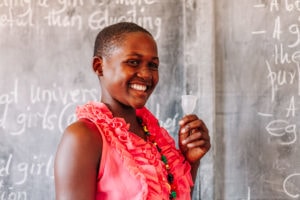
IN THE PHOTO: The pilot intervention showed a high uptake percentage among the girls at the refugee settlement. This proves that the use of menstrual cups can be a suitable way to manage menstruation in low-income and humanitarian settings. PHOTO CREDIT: Muyingo Siraj
For WoMena, introducing menstrual health programmes is about giving women and girls increased control and agency n their lives. As WoMena Director, Marianne Tellier notes, “menstrual cup users develop routines of use, making them able to take better control of their time and activities since they no longer need to worry about leakages”. Interestingly, the refugee settlement context seems to allow for deviation from the set cultural rules around menstruation, which can restrict female agency. Cooking and farming during your period is usually forbidden as it is believed to be unclean. However, female heads of households at the settlement could not abide to these restrictions, as this would have adversely impacted the household’s livelihoods.
What’s next?
The next steps for the organisation include scaling up their activities in Uganda and in other low-income settings including humanitarian contexts. There is an immense need for more research and reliable data that looks into MHM as part of emergency programme interventions, to understand what is feasible and how to successfully and safely introduce these methods to these vulnerable populations. However, one thing that we already know is that embedding MHM projects in social support structures is crucial. As Marianne points out “There are many challenges but also many opportunities in the refugee context to positively address restrictive norms and taboos around reproductive health. If we tailor our interventions, respect and work with communities, find a model for taking that to scale in a practical, cost-efficient manner, and mobilize resources – then we know it will work”. Sustainable solutions are urgently needed for girls and women to manage their menstruation with dignity while ensuring that no one is held back by their periods.


